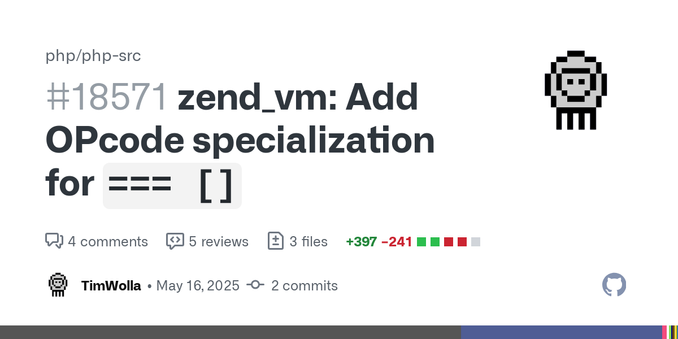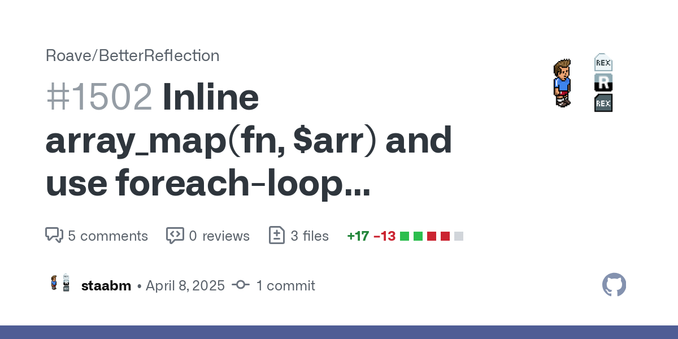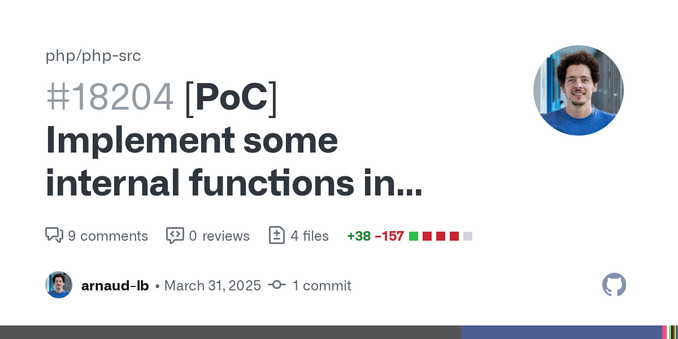"""Checking whether an array is empty with a strict comparison against the empty array is a common pattern in PHP. A GitHub search for "=== []" language:PHP reveals 44k hits. From the set of !$a, count($a) === 0, empty($a) and $a === [] it however is also the slowest option."""
https://github.com/php/php-src/pull/18571
This is a great example of how you should write whatever you find most readable and maintainable, and let us worry about efficiency. Wtih this PR, the "slow" approach becomes a "fast" one.



